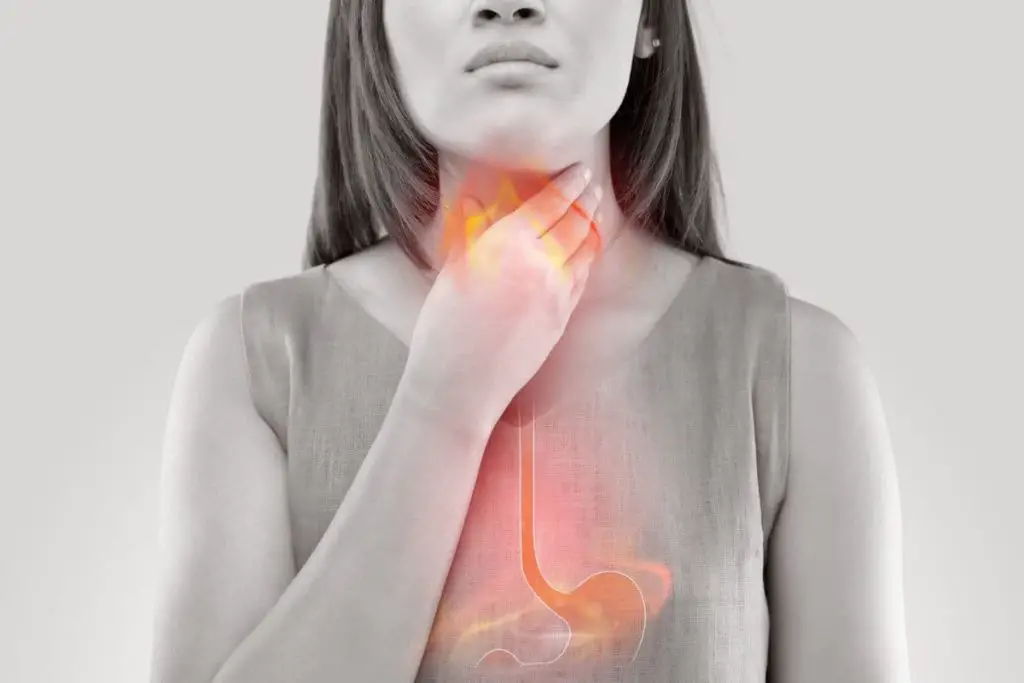When you fast, you’re intentionally skipping or delaying meals to gain many health benefits, such as weight loss and reducing the risk of major life-threatening conditions like diabetes and heart disease. However, you may be puzzled as to why you sweat while intermittent fasting.
You sweat while intermittent fasting because skipping meals causes low blood sugar, releasing adrenaline, a hormone responsible for cold sweats. Similarly, prolonged fasting affects thyroid levels, which leads to excessive sweating as the thyroid gland strives to balance body temperatures.
In the rest of the article, I’ll discuss the possible causes of sweating while intermittent fasting and provide tips on preventing excessive sweating, especially at night. Continue reading to learn more.

Causes of Sweating While Intermittent Fasting
There are no proven medical causes for sweating a lot during intermittent fasting. However, sweating is a body’s mechanism to cool itself after high temperatures. Alternatively, you can experience cold sweats on your palms or soles due to body shock after prolonged fasting.
Here are some possible causes of sweating during intermittent fasting.
1. Low Blood Sugar (Hypoglycemia)
After prolonged fasting, your blood sugar levels drop, sending your body into a hypoglycemic state, a survival mode that causes excessive sweating or cold sweats. This is because your body releases adrenaline instead of insulin hormone due to the lack of glucose in the blood.
Although hypoglycemia is more common in people with diabetes, intermittent fasters are also at risk because they frequently skip meals. You can offset the negative effects by breaking your fast and eating small portions of meals or ensuring you’re not fasting longer than 24 hours.
The following are some severe symptoms of low blood sugar (hypoglycemia):
- Irregular or racing heartbeat.
- Disorientation and looking pale.
- Shaking and unsteadiness.
- Prolonged headaches and dizziness.
Hypoglycemia can be life-threatening. Therefore, you shouldn’t fast for long hours unless you’re under the supervision or authorization of a medical professional.
2. Thyroid Problems
Thyroid problems or hyperthyroidism result from an overactive thyroid gland in your neck that releases a lot of thyroxine hormone into your system, making you sweat excessively.
You can get diagnosed with hyperthyroidism following an autoimmune or infectious disease that causes inflammation in your healthy body tissues.
Therefore, you should avoid intermittent fasting if you have an underlying medical condition that can lead to hormonal changes. Seek medical advice and get approval from your doctor before participating in either short-term or long-term intermittent fasting.
Unexpected weight loss and palpitations are some severe symptoms to look out for. If you experience such symptoms, you must stop intermittent fasting immediately and consult a doctor.
3. Anxiety Disorders
Mental issues like severe anxiety and stress can also cause physical symptoms like excessive sweating. When you fast for long hours, your body goes through hunger and stress that can interfere with your body’s natural mechanism.

These emotions can also trigger physical symptoms like rapid heartbeat, stomach issues, and trouble breathing. If you’re new to fasting, start slowly to give your body ample time to adjust to the new eating habits.
It would be best to consult a mental health professional or a therapist to determine whether the type of fasting you want to practice is safe for your mental and physical health. They may suggest various lifestyle changes, use therapy, and prescribe medications if you have anxiety.
4. Medication Side Effects
It’s important to understand that certain medications like antidepressants and painkillers may induce excessive sweating, especially at night.
You should first speak with your doctor to determine the ideal time to take your medication while fasting without experiencing negative side effects. If you notice changes in body temperature or stomach issues, you should take the medications during your eating window.
Alternatively, you can ask your doctor if it’s safe to stop taking the medications while doing intermittent fasting without undoing the medication’s overall benefits.
5. Eating Certain Types of Foods
It may sound odd, but eating certain foods can promote sweating.
This is the case when you break a fast with hard-to-digest foods like red meat, which makes your digestive system work harder than usual, considering that you have been fasting for hours and only consuming water and other zero-calorie drinks like unsweetened black coffee or green tea.
Similarly, eating spicy foods may elevate your heart rate, which causes your body to send signals to sweat glands, leading to excessive sweating. Be on the safe side by avoiding spicy foods or late-night snacks to prevent sweating excessively, especially at night before bedtime.
After breaking a fast, introduce solid foods by eating a healthy diet in smaller portions, including vegetables and lean protein sources like eggs, fish, and chicken.
6. Acid Reflux (GERD)
Acid reflux or gastroesophageal reflux disease (GERD) is a common side effect of prolonged intermittent fasting that triggers the feeling of heartburn after breaking your fast with hard solid foods.
Therefore, you should break your fast with soft meals or fluids like a vegetable bone broth to prevent other digestive issues like bloating and constipation, which can interfere with your body temperature and lead to sweating episodes.

If acid reflux is left untreated or controlled, it can increase your heart rate leading to excessive sweat and disrupting your sleep at night. In some severe cases, you may be required to take certain acid reflux medications prescribed by a physician.
Note: Without taking intermittent fasting into account, hormonal changes such as menopause in women and low testosterone in men might also contribute to sweating.
Tips on Preventing Sweating
Numerous factors can contribute to increased sweating or cold sweats during intermittent fasting. Fortunately, you can use the following tips to prevent excessive sweating.
- Wear light and breathable clothing.
- Take an antiperspirant prescribed by your doctor.
- Avoid consuming alcohol, smoking cigarettes, or any other drug abuse.
- Avoid sweat triggers like spicy foods and caffeine.
- Avoid vigorous exercises.
- Eat small and frequent meals to regulate digestion.
- Use a cooling fan or leave the window cracks open at night.
Conclusion
There is no possible way to stop sweating indefinitely as it’s a natural mechanism to control body temperature and remove harmful toxins from the body. However, some factors, such as low blood sugar and thyroid problems, can lead to cold sweats or excessive sweating while intermittent fasting. Luckily, you can prevent excessive sweating by trying the above tips.

